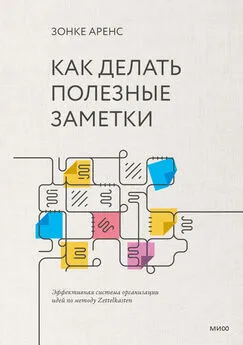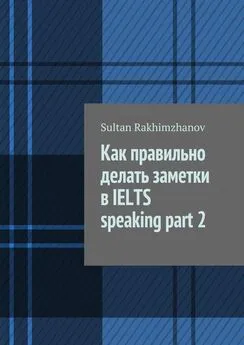Зонке Аренс - Как делать полезные заметки
- Название:Как делать полезные заметки
- Автор:
- Жанр:
- Издательство:Манн, Иванов и Фербер
- Год:2022
- Город:Москва
- ISBN:9785001699859
- Рейтинг:
- Избранное:Добавить в избранное
-
Отзывы:
-
Ваша оценка:
Зонке Аренс - Как делать полезные заметки краткое содержание
С помощью этой книги вы освоите принцип полезных заметок и поймете не только то, как он работает, но и почему. Неважно, кто вы и чем занимаетесь — учитесь в университете, пишете статьи или просто читаете книги и изучаете интересную информацию, — с помощью метода Zettelkasten вы научитесь делать это более продуктивно и без лишних усилий.
Как делать полезные заметки - читать онлайн бесплатно ознакомительный отрывок
Интервал:
Закладка:
69. Jang, Yoonhee, John T. Wixted, Diane Pecher, René Zeelenberg, and David E. Huber. 2012. «Decomposing the Interaction Between Retention Interval and Study/Test Practice: The Role of Retrievability.» The Quarterly Journal of Experimental Psychology 65 (5): 962–975.
70. Ji, Mindy F., and Wendy Wood. 2007. «Purchase and Consumption Habits: Not Necessarily What You Intend.» Journal of Consumer Psychology 17 (4): 261–276.
71. Job, V., C. S. Dweck, and G. M. Walton. 2010. «Ego Depletion — Is It All in Your Head? Implicit Theories About Willpower Affect Self-Regulation.» Psychological Science 21 (11): 1686–1693.
72. Канеман, Даниэль. Думай медленно… Решай быстро. М.: АСТ, 2013.
73. Kahneman, Daniel. 2013. Thinking, Fast and Slow. Reprint edition. New York: Farrar, Straus and Giroux.
74. Kant, Immanuel. 1784. «What is Enlightenment?» Translated by Mary C. Smith. 1991. http://www.columbia.edu/acis/ets/CCREAD/etscc/kant.html.
75. Karpicke, Jeffrey D., Andrew C. Butler, and Henry L. Roediger III. 2009. «Metacognitive Strategies in Student Learning: Do Students Practise Retrieval When They Study on Their Own?» Memory 17 (4): 471–479.
76. Kornell, Nate, and Robert A. Bjork. 2008. «Learning Concepts and Categories: Is Spacing the ‘Enemy of Induction’?» Psychological Science 19 (6): 585–592.
77. Kruger, Justin, and David Dunning. 1999. ‘Unskilled and Unaware of It: How Difficulties in Recognizing One’s Own In-competence Lead to Inflated Self-Assessments’. Journal of Personality and Social Psychology 77 (6): 1121–1134.
78. Kruse, Otto. 2005. Keine Angst vor dem leeren Blatt: ohne Schreibblockaden durchs Studium. Frankfurt/Main: Campus.
79. Langer, E. J., and J. Rodin. 1976. «The Effects of Choice and Enhanced Personal Responsibility for the Aged: A Field Experiment in an Institutional Setting.» Journal of Personality and Social Psychology 34 (2): 191–198.
80. Latour, Bruno, and Steve Woolgar. 1979. Laboratory Life: The Social Construction of Scientific Facts. Beverly Hills: Sage Publications.
81. Levin, Mary E., and Joel R. Levin. 1990. «Scientific Mnemonomies: Methods for Maximizing More Than Memory». American Educational Research Journal 27 (2): 301–21.
82. Levinson, Marc. 2006. The Box: How the Shipping Container Made the World Smaller and the World Economy Bigger. Princeton, N.J: Princeton University Press.
83. Levy, Neil. 2011. «Neuroethics and the Extended Mind.» In Judy Illes and B. J. Sahakian (Ed.), Oxford Handbook of Neuro-ethics, 285–94, Oxford University Press.
84. Lichter, S. Robert. 2001. «A Plague on Both Parties Substance and Fairness in TV Election News». The Harvard International Journal of Press/Politics 6 (3): 8–30.
85. Loewenstein, Jeffrey. (2010). How One’s Hook Is Baited Matters for Catching an Analogy. In B. H. Ross (Ed.), The Psychology of Larning and Motivation: Advances in Research and Theory, 149–182. Amsterdam: Academic Press.
86. Lonka, Kirsti. 2003. «Helping Doctoral Students to Finish Their Theses.» In Teaching Academic Writing in European Higher Education, edited by Lennart Björk, Gerd Bräuer, Lotte Rienecker, and Peter Stray Jörgensen, 113–131. Studies in Writing 12. Springer Netherlands.
87. Luhmann, Niklas. 1992. «Kommunikation mit Zettelkästen. Ein Erfahrungsbericht.» In Universität als Milieu. Kleine Schriften., edited by André Kieserling, 53–61. Bielefeld: Haux.
88. Luhmann, Niklas. 1997. Die Gesellschaft der Gesellschaft. Frankfurt am Main: Suhrkamp.
89. Luhmann, Niklas. 2000. «Lesen Lernen.» In Short Cuts, 150–157. Frankfurt am Main: Zweitausendeins.
90. Luhmann, Niklas. 2005. Einführung in die Theorie der Gesellschaft. Heidelberg: Carl Auer.
91. Luhmann, Niklas, Dirk Baecker, and Georg Stanitzek. 1987. Archimedes und wir: Interviews. Berlin: Merve.
92. Lurija, Aleksandr Romanovič. 1987. The Mind of a Mnemonist: A Little Book about a Vast Memory. Cambridge MA: Harvard University Press.
93. MacLeod, Colin M. 2007. «The Concept of Inhibition in Cognition.» In Inhibition in Cognition, edited by David S. Gorfein and Colin M. MacLeod, 3–23. Washington: American Psychological Association.
94. Mangel, Marc, and Francisco J. Samaniego. 1984. «Abraham Wald’s Work on Aircraft Survivability.» Journal of the American Statistical Association 79 (386): 259–267.
95. Manktelow, K. I., and Kenneth J. W Craik, (Ed.). 2004. «The History of Mental Models.» In Psychology of Reasoning: Theoretical and Historical Perspectives, 179–212. New York: Psychology Press.
96. Markman, K. D., M. J. Lindberg, L. J. Kray, and A. D. Galinsky. 2007. «Implications of Counterfactual Structure for Creative Generation and Analytical Problem Solving.» Personality and Social Psychology Bulletin 33 (3): 312–324.
97. Marmot, M. G., H. Bosma, H. Hemingway, E. Brunner, and S. Stansfeld. 1997. «Contribution of Job Control and Other Risk Factors to Social Variations in Coronary Heart Disease Incidence.» Lancet 350 (9073): 235–39.
98. Marmot, Michael G. 2006. «Status Syndrome: A Challenge to Medicine.» JAMA 295 (11): 1304–1307.
99. Maslow, Abraham H. 1966. The Psychology of Science. Chapel Hill, NC: Maurice Bassett.
100. Mata, J., Todd, P. M., Lippke, S. 2010. When Weight Management Lasts. Lower Perceived Rule Complexity Increases Adherence. Appetite, 54(1), 37–43.
101. McDaniel, Mark A., and Carol M. Donnelly. 1996. «Learning with Analogy and Elaborative Interrogation.» Journal of Educational Psychology 88 (3): 508–519.
102. McMath, Robert M., and Thom Forbes. 1999. What Were They Thinking? New York: Crown Business.
103. Miller, George A. 1956. «The magical number seven, plus or minus two: some limits on our capacity for processing information.» Psychological Review 63 (2): 81–97.
104. Moller, A. C. 2006. «Choice and Ego-Depletion: The Moderating Role of Autonomy». Personality and Social Psychology Bulletin 32 (8): 1024–1036.
105. Mueller, P. A., and D. M. Oppenheimer. 2014. «The Pen Is Mightier Than the Keyboard: Advantages of Longhand Over Laptop Note Taking.» Psychological Science 25 (6): 1159–1168.
106. Mullainathan, Sendhil, and Eldar Shafir. 2013. Scarcity: Why Having Too Little Means So Much. London: Penguin UK.
107. Mullen, Brian, Craig Johnson, and Eduardo Salas. 1991. «Productivity Loss in Brainstorming Groups: A Meta-Analytic Integration.» Basic and Applied Social Psychology 12 (1): 3–23.
108. Munger, Charles. 1994. «A Lesson on Elementary, Worldly Wisdom as it Relates to Investment Management & Business.» Speech given at USC Business School.
109. Muraven, Mark, Dianne M. Tice, and Roy F. Baumeister. 1998. «Self-Control as a Limited Resource: Regulatory Depletion Patterns». Journal of Personality and Social Psychology 74 (3): 774–789.
110. Nassehi, Armin. 2015. Die letzte Stunde der Wahrheit. Warum rechts und links keine Alternativen mehr sind und Gesellschaft ganz anders beschrieben werden muss. Hamburg: Murmann.
111. Neal, David T., Wendy Wood, Jennifer S. Labrecque, and Phillippa Lally. 2012. «How Do Habits Guide Behavior? Perceived and Actual Triggers of Habits in Daily Life.» Journal of Experimental Social Psychology 48 (2): 492–498.
112. Newman, Joseph, William T. Wolff and Eliot T. Hearst. 1980. «The Feature-Positive Effect in Adult Human Subjects.» Journal of Experimental Psychology. Human Learning and Memory 6 (5): 630–650.
113. Nickerson, Raymond S. 1998. «Confirmation Bias: A Ubiquitous Phenomenon in Many Guises.» Review of General Psychology 2 (2): 175–220.
114. Ophir, Eyal, Clifford Nass and Anthony D. Wagner. 2009. «Cognitive Control in Media Multitaskers.» Proceedings of the National Academy of Sciences 106 (37): 15583–1587.
115. Oppenheimer, Daniel M. 2006. «Consequences of Erudite Vernacular Utilized Irrespective of Necessity: Problems with Using Long Words Needlessly». Applied Cognitive Psychology 20 (2): 139–156.
116. Painter, James E, Brian Wansink, and Julie B. Hieggelke. 2002. «How Visibility and Convenience Influence Candy Consumption». Appetite 38 (3): 237–238.
117. Parkinson, Northcote C. 1957. Parkinson`s Law and Other Studies of Administration. Cambridge — Massachusetts: The River-side Press.
118. Peters, Sibylle, and Martin Jörg Schäfer. 2006. «Intellektuelle Anschauung — unmögliche Evidenz.» In Intellektuelle Anschauung. Figurationen von Evidenz zwischen Kunst und Wissen, edited by Sibylle Peters and Martin Jörg Schäfer, 9–21. Bielefeld.
119. Pham, Lien B., and Shelley E. Taylor. 1999. «From Thought to Action: Effects of Process-Versus Outcome-Based Mental Simulations on Performance.» Personality and Social Psychology Bulletin 25 (2): 250–260.
120. Quiller-Couch, Arthur. 2006. On the Art of Writing. Mineola, NY: Dover Publications.
121. Рэйти Дж., Хагерман Э. Зажги себя! Жизнь в движении.М.: Манн, Иванов и Фербер, 2017.
122. Ratey, John J. 2008. Spark: The Revolutionary New Science of Exercise and the Brain. New York: Little, Brown & Company.
123. Reeve, Johnmarshall. 2009. «Why Teachers Adopt a Controlling Motivating Style Toward Students and How They Can Be-come More Autonomy Supportive». Educational Psychologist 44 (3): 159–175.
124. Reeve, Johnmarshall, and Hyungshim Jang. 2006. «What Teachers Say and Do to Support Students’ Autonomy during a Learning Activity.» Journal of Educational Psychology 98 (1): 209–218.
125. Rheinberger, Hans-Jörg. 1997. Toward a History of Epistemic Things: Synthesizing Proteins in the Test Tube. Stanford, Calif: Stanford University Press.
126. Rickheit, Gert, and C. Sichelschmidt. 1999. «Mental Models: Some Answers, Some Questions, Some Suggestions». In Mental Models in Discourse Processing and Reasoning, edited by Gert Rickheit and Christopher Habel, 6–40. Cambridge, MA: Elsevier.
127. Rivard, Lé Onard P. 1994. «A Review of Writing to Learn in Science: Implications for Practice and Research.» Journal of Research in Science Teaching 31 (9): 969–983.
128. Robinson, Francis Pleasant. 1978. Effective Study. 6thed. New York: Harper & Row.
129. Rodin, Judith, and Ellen J. Langer. 1977. «Long-term effects of a control-relevant intervention with the institutionalized aged.» Journal of Personality and Social Psychology 35 (12): 897–902.
130. Roediger, Henry L., and Jeffrey D. Karpicke. 2006. «The Power of Testing Memory: Basic Research and Implications for Educational Practice.» Perspectives on Psychological Science 1 (3): 181–210.
131. Rosen, Christine. 2008. «The Myth of Multitasking.» The New Atlantic Spring (20): 105–110.
132. Rothenberg, Albert. 1971. «The Process of Janusian Thinking in Creativity.» Archives of General Psychiatry 24 (3): 195–205.
133. Rothenberg, Albert. 1996. «The Janusian Process in Scientific Creativity.» Creativity Research Journal 9 (2–3): 207–231.
134. Rothenberg, Albert. 2015. Flight from wonder: an investigation of scientific creativity. Oxford; New York: Oxford University Press.
135. Ryfe, David M., and Markus Kemmelmeier. 2011. «Quoting Practices, Path Dependency and the Birth of Modern Journalism.» Journalism Studies 12 (1): 10–26.
136. Sachs, Helmut. 2013. Remember Everything You Want and Manage the Rest: Improve Your Memory and Learning, Organize Your Brain, and Effectively Manage Your Knowledge. Amazon Digital Services.
137. Sainsbury, Robert. 1971. «The ‘Feature Positive Effect’ and Simultaneous Discrimination Learning.» Journal of Experimental Child Psychology 11 (3): 347–356.
Читать дальшеИнтервал:
Закладка:
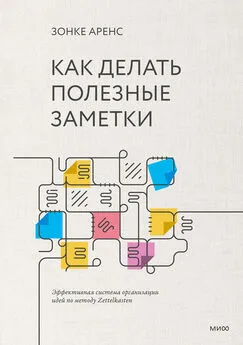
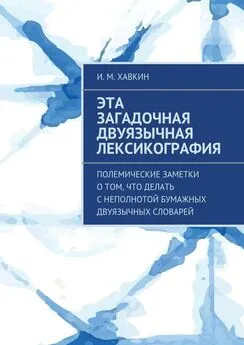


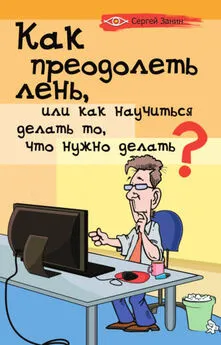
![Наталья Краснова - [НЕ]ВЕРНОСТЬ. Что делать, когда не знаешь, что делать](/books/1163779/natalya-krasnova-ne-vernost-chto-delat-kogda-n.webp)
